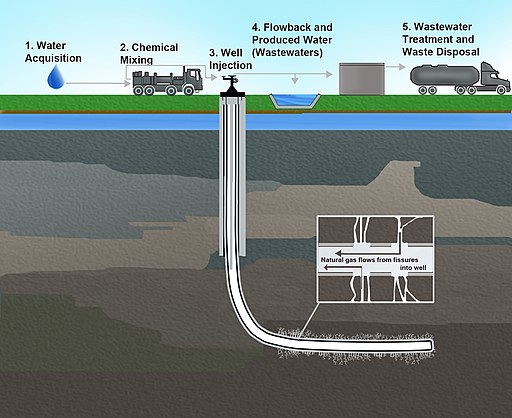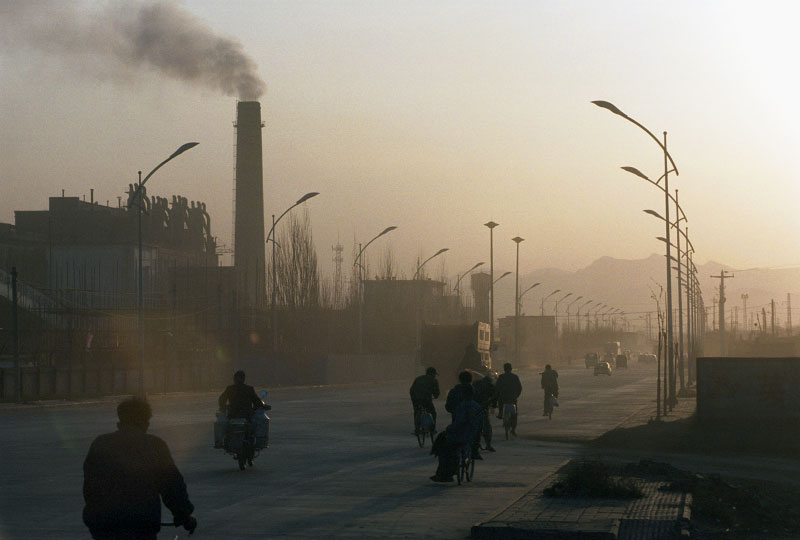
by Deep Green Resistance News Service | Feb 20, 2013 | Agriculture, Biodiversity & Habitat Destruction, NEWS
By Jeremy Hance / Mongabay
A biofuel plantation near Yala National Park has landed Lanka Orex Leasing Company PLC (LOLC) in Sri Lanka’s highest court. Environmentalists say the company is illegally bulldozing Asian elephant habitat, including scrubland and tree stands, near the buffer zone of Yala National Park for gliricidia (Gliricidia sepium) biofuel plantation.
“This is going to be a permanent cultivation within the home range of few elephant herds,” Vimukthi Weeratunga, Environmental Foundation Limited (EFL)’s head of operations and environmental scientist, told mongabay.com. “When we take the elephant land by developing this area, elephants will move to nearby villages to raid crop as they cannot use this area for their normal activities. This is exactly the way that human-elephant conflict increased in the other parts of Sri Lanka.”
Located near the buffer zone of Yala National Park, Weetatunga states that company never conducted an environmental impact assessment (EIA), transgressing Sri Lankan law. In addition, the Sri Lanka’s Forest Department has repeatedly denied leasing the land to the company in local press, instead it gave 500 hectares (1,250 acres) to local dairy farmers for rearing cattle. Lanka Orex Leasing Company PLC was merely supposed to provide “technical assistance” to the farmers.
The site in question is currently used by smallscale farmers for cattle and farming, but Weetatunga says that this doesn’t mean the ecosystem is degraded. Instead, he says smallscale farming and livestock in the area are actually important for elephants as opposed to a monoculture plantation.
“Shifting cultivation is a traditional farming practice by clearing some scrubland and leave after the harvest for forest to re-grow. This practice is ideal for elephants to thrive as they get high quality fodder after people leave to regrow,” he explains. Between 2,000 and 4,500 Asian elephants (Elephas maximus) roam Sri Lanka’s forests. The species is currently listed as Endangered by the IUCN Red List.
The area in question is home to many other species as well, including leopards, fishing cats, sloth bears, pangolins, and a large variety of birds.
Many have noted in Sri Lankan press the irony of destroying elephant habitat, including forest lands, for so-called green energy made from biofuels. Gliricidia is a woody plant that can be burned in a biofuel power plant.
The Environmental Foundation Limited (EFL) is currently awaiting a court date next month with Lanka Orex Leasing Company over the habitat clearing.
“We are asking [for an] injunction of current activities,” Weetatunga says. “We are also seeking compensation for their action if we win the case.”
Last year, environmentalists in Sri Lanka caught U.S. food giant Dole clearing forest in Somawathiya National Park for a banana plantation. Dole denied it was inside the park for months, but finally abandoned the project after threat of lawsuit.
Like many Southeast Asian countries, Sri Lankan is currently undergoing a tension between large-scale industrial projects, such as monoculture plantations, and local farming and conservation efforts.
by Deep Green Resistance News Service | Feb 1, 2013 | Agriculture, Climate Change
By Bangor University
Growing oil palm to make ‘green’ biofuels in the tropics could be accelerating the effects of climate change, say scientists.
Researchers from Bangor University found the creation of oil palm plantations are releasing prehistoric sources of carbon dioxide back into the atmosphere.
The findings throw into doubt hopes that biofuels grown in the tropics could help cut greenhouse gas emissions.
Working as part of an international team, the north Wales scientists looked at how the deforestation of peat-swamps in Malaysia, to make way for oil palm trees, is releasing carbon which has been locked away for thousands of years.
It is feared this carbon will be attacked by microbes and produce the greenhouse gas, carbon dioxide. The Bangor researchers say the ancient carbon comes from deep in the soil, which as the effects of deforestation take hold, breaks down and dissolves into the nearby watercourses.
When describing their work which appears in Nature, Prof Chris Freeman commented: “We first noticed that the ditches draining areas converted to palm oil plantations were loaded with unusually high levels of dissolved carbon back in 1995, but it was not until my researcher Dr Tim Jones took samples to measure the age of that carbon that we realised we were onto something important”. Dr Jones added “We were amazed to discover that the samples from Malaysian oil palm plantations contained the oldest soil-derived dissolved organic carbon ever recorded.”
The Bangor University researchers measured the water leaching from channels in palm oil plantations in the Malaysian peninsular which were originally Peatland Swamp Forest. There are approximately 28,000 km2 of industrial plantations in peninsular Malaysia, Sumatra and Borneo with even more planned, making them a major contributor to peatswamp deforestation in the region. Prof Freeman commented; “Our results are yet another reminder that when we disturb intact peatswamps and convert them to industrial biofuel plantations, we risk adding to the very problem that we are trying to solve”
Prof Freeman added: “We have known for some time that in South East Asia, oil palm plantations were a major threat to biodiversity, including the habitat for orang-utans, and that the drainage could release huge amounts of carbon dioxide during the fires seen there in recent years. But this discovery of a “hidden” new source of problems in the waters draining these peatlands is a reminder that these fragile ecosystems really are in need of conservation.”
Read more from Bangor University: http://www.bangor.ac.uk/news/full.php.en?nid=12106&tnid=12106
by Deep Green Resistance News Service | Jan 17, 2013 | Colonialism & Conquest, Defensive Violence, Indigenous Autonomy
By Jonathan Watts / The Guardian
An indigenous community in the Ecuadorian Amazon has won a reprieve after building up an arsenal of spears, blowpipes, machetes and guns to fend off an expected intrusion by the army and a state-run oil company.
The residents of Sani Isla expressed relief that a confrontation with Petroamazonas did not take place on Tuesday as anticipated, but said the firm is still trying to secure exploration rights in their area of pristine rainforest.
“We have won a victory in our community. We’re united,” said the community president, Leonardo Tapuy. “But the government and the oil company won’t leave us alone. ”
The Kichwa tribe on Sani Isla, had said they were ready to fight to the death to protect their territory, which covers 70,000 hectares. More than a quarter of their land is in Yasuni national park, the most biodiverse place on earth.
Petroamazonas had earlier told them it would begin prospecting on their land on 15 January, backed by public security forces.
Before the expected confrontation,the shaman, Patricio Jipa said people were making blowpipes and spears, trying to borrow guns and preparing to use sticks, stones, and any other weapons they could lay their hands on.
“Our intention was not to hurt or kill anyone, but to stop them from entering our land,” he said.
It is unclear why Petroamazonas hesitated. The company has yet to respond to the Guardian’s request for a comment.
Locals speculated that it was due to a reaffirmation of opposition to the oil company at a marathon community meeting on Sunday.
“They’ve heard that we are united against the exploration so they have backed off,” said Fredy Gualinga, manager of the Sani Lodge. “We’re happy they haven’t come. Life is going on as normal.”
The relief may not last for long given the huge fossil fuel resources that are thought to lie below the forest.
“It was a close thing, but we’re not out of the water. The oil company has not given up. They will continue to hound us and to try to divide the community. But at least we have a few days respite,” said Mari Muench, a British woman who is married to the village shaman.
The elected leaders of Sani Isla have pledged to resist offers from Petroamazonas for the duration of their term.
“This policy will remain in place during our period in office. We’re committed to that and we will do what we can to make it more permanent,” said Abdon Grefa, the speaker of the community.
The battle has now moved to the judicial system and the court of public opinion. Their appeal for an injunction went before a judge on Wednesday and they are calling on supporters to help them build a long-term economic alternative to fossil fuels.
“We hope people will write protest letters to Petroamazonas, come and visit our lodge, promote Sani, donate money to our school and projects, volunteer as teachers or provide funds to students to travel overseas so they can learn what we need to survive in the future,” said the community secretary, Klider Gualinga.
From The Guardian: http://www.guardian.co.uk/environment/2013/jan/17/indigenous-ecuadorian-tribe-oil-intrusion

by Deep Green Resistance News Service | Jan 5, 2013 | Climate Change, Mining & Drilling
By Joe Romm / Think Progress
Researchers with the National Oceanic and Atmospheric Administration (NOAA) have reconfirmed earlier findings of high rates of methane leakage from natural gas fields. If these findings are replicated elsewhere, they would utterly vitiate the climate benefit of natural gas, even when used to switch off coal.
Indeed, if the previous findings — of 4% methane leakage over a Colorado gas field — were a bombshell, then the new measurements reported by the journal Nature are thermonuclear:
… the research team reported new Colorado data that support the earlier work, as well as preliminary results from a field study in the Uinta Basin of Utah suggesting even higher rates of methane leakage — an eye-popping 9% of the total production. That figure is nearly double the cumulative loss rates estimated from industry data — which are already higher in Utah than in Colorado.
The Uinta Basin is of particular interest because fracking has increased there over the past decade.
How much methane leaks during the entire lifecycle of unconventional gas has emerged as a key question in the fracking debate. Natural gas is mostly methane (CH4). And methane is a far more potent greenhouse gas than (CO2), which is released when any hydrocarbon, like natural gas, is burned — 25 times more potent over a century and 72 to 100 times more potent over a 20-year period.
Even without a high-leakage rate for shale gas, we know that “Absent a Serious Price for Global Warming Pollution, Natural Gas Is A Bridge To Nowhere.” That was first demonstrated by the International Energy Agency in its big June 2011 report on gas — see IEA’s “Golden Age of Gas Scenario” Leads to More Than 6°F Warming and Out-of-Control Climate Change. That study — which had both coal and oil consumption peaking in 2020 — made abundantly clear that if we want to avoid catastrophic warming, we need to start getting off of all fossil fuels.
A March 2012 study by climatologist Ken Caldeira and tech guru Nathan Myhrvold came to a similar conclusion using different methodology (see “You Can’t Slow Projected Warming With Gas, You Need ‘Rapid and Massive Deployment’ of Zero-Carbon Power“). They found that even if you could switch entirely over to natural gas in four decades, you “won’t see any substantial decrease in global temperatures for up to 250 years. There’s almost no climate value in doing it.” And that was using conventional (i.e. low) leakage rates.
But the leakage rate does matter. A major 2011 study by Tom Wigley of the Center for Atmospheric Research (NCAR) concluded:
The most important result, however, in accord with the above authors, is that, unless leakage rates for new methane can be kept below 2%, substituting gas for coal is not an effective means for reducing the magnitude of future climate change.
Wigley, it should be noted, was looking at the combined warming impact from three factors — from the methane leakage, from the gas plant CO2 emissions, and from the drop in sulfate aerosols caused by switching out coal for gas. In a country like the United States, which strongly regulates sulfate aerosols, that third factor is probably much smaller. Of course, in countries like China and India, it would be a big deal.
An April 2012 study found that a big switch from coal to gas would only reduce “technology warming potentials” by about 25% over the first three decades — far different than the typical statement that you get a 50% drop in CO2 emissions from the switch. And that assumed a total methane leakage of 2.4% (using EPA’s latest estimate). The study found that if the total leakage exceeds 3.2% “gas becomes worse for the climate than coal for at least some period of time.”
Leakage of 4%, let alone 9%, would call into question the value of unconventional gas as any sort of bridge fuel. Colm Sweeney, the head of the aircraft program at NOAA’s Earth System Research Laboratory, who led the study’s aerial component, told Nature:
“We were expecting to see high methane levels, but I don’t think anybody really comprehended the true magnitude of what we would see.”
The industry has tended to keep most of the data secret while downplaying the leakage issue. The Environmental Defense Fund (EDF) is working with the industry to develop credible leakage numbers in a variety of locations.
The earlier NOAA findings were called into question by Michael Levi of the Council on Foreign Relations. The NOAA researchers “have a defence of the Colorado study in press,” Nature notes.
Right now, fracking would seem to be a bridge to nowhere.
From Think Progress: http://thinkprogress.org/climate/2013/01/02/1388021/bridge-to-nowhere-noaa-confirms-high-methane-leakage-rate-up-to-9-from-gas-fields-gutting-climate-benefit/
Banner: US Environmental Protection Agency, Office of Research and Development, Washington, DC, Public domain, via Wikimedia Commons

by Deep Green Resistance News Service | Dec 18, 2012 | Climate Change
By Fiona Harvey / The Guardian
Coal is likely to rival oil as the world’s biggest source of energy in the next five years, with potentially disastrous consequences for the climate, according to the world’s leading authority on energy economics.
One of the biggest factors behind the rise in coal use has been the massive increase in the use of shale gas in the US.
Coal consumption is increasing all over the world – even in countries and regions with carbon-cutting targets – except the US, where shale gas has displaced coal, shows new research from the International Energy Agency (IEA). The decline of the fuel in the US has helped to cut prices for coal globally, which has made it more attractive, even in Europe where coal use was supposed to be discouraged by the emissions trading scheme.
Maria van der Hoeven, executive director of the IEA, said: “Coal’s share of the global energy mix continues to grow each year, and if no changes are made to current policies, coal will catch oil within a decade.”
Coal is abundant and found in most regions of the world, unlike conventional oil and gas, and can be cheaply extracted. As a result, coal was used to meet nearly half of the rise in demand for energy globally in the past decade. According to the IEA, demand from China and India will drive world coal use in the coming five years, with India on course to overtake the US as the world’s second biggest consumer. China is the biggest coal importer, and Indonesia the biggest exporter, having temporarily overtaken Australia.
According to the IEA’s Medium Term Coal Market Report, published on Tuesday morning, the world will burn 1.2bn more tonnes of coal per year by 2017 compared with today – the equivalent of the current coal consumption of Russia and the US combined. Global coal consumption is forecast to reach 4.3bn tonnes of oil equivalent by 2017, while oil consumption is forecast to reach 4.4bn tonnes by the same date.
With the highest carbon emissions of any major fossil fuel, coal is a huge contributor to climate change, particularly when burned in old-fashioned, inefficient power stations. When these are not equipped with special “scrubbing” equipment to remove chemicals, coal can also produce sulphur emissions – the leading cause of acid rain – and other pollutants such as mercury and soot particles.
From The Guardian: http://www.guardian.co.uk/environment/2012/dec/18/coal-challenge-oil-international-energy-agency



